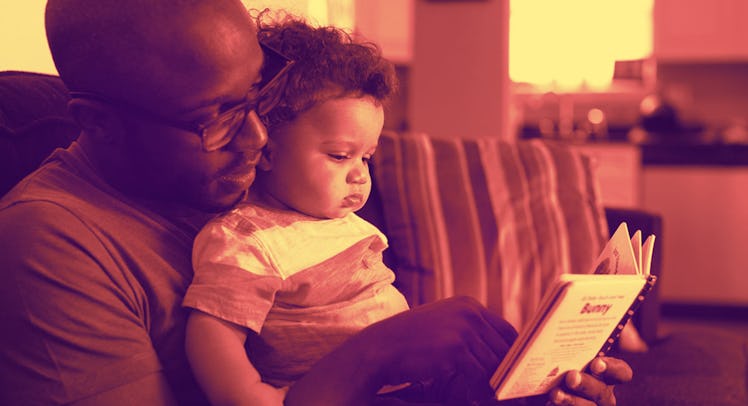How to Teach a Baby to Be a Book Lover for Life
Loving books is not just about reading, it’s about loving them as objects that represent a wide and wonderful world.

Nowadays, raising a book lover might feel as useful as teaching your kid cuneiform. After all, we’re already living in the e-book age and it’s only a matter of time before some company starts beaming books (and targeted advertising) into our brains. But research suggests there are still solid, contemporary reasons to raise a book lover. One Yale study, for instance, found that book lovers live about two years longer than their counterparts. Other studies have found that reading novels increases empathy and brain health. For those reasons alone, parents should be inspired to help their children develop a love for books. And it all starts with letting them chew on the pages.
“Reading and loving of books is part of learning. The touch and feel is important. The taste is important,” Nina Lindsay, President of the Association for Library Service to Children, told Fatherly. “They are learning aurally by listening to you say the words and trying to verbalize them back. They’re learning that words on a page or pictures on a page can mean something in real life. They’re learning books through every single sense.”
Lindsay stresses that these senses are the key to getting a baby hooked on books. Particularly when parents align the book experience with their babies’ level of development. Babies, for instance, will definitely gum, slap, throw, and pick at their board books. That’s a very good thing.
“Just the grabbing and that physical engagement with books is part of learning to love to read,” says Lindsay. “That’s why you also get the touch and feel books, and books where they lift the flaps when they’re able to use more manipulation.”
Babies are also drawn to simplicity.Lindsay explains that parents should look for board books with a single high contrast picture and word on each page. Bonus points if some of those pictures are of babies. Plot, on the other hand, is wholly unnecessary. They already understand the value of a good book, but the value of a good story will be lost on them until about age three.
Parents should establish a regular story time, too. Repetition, while mind-numbing to a parent, is hugely important for a child. “Try to think about what your child is getting out of it,” Lindsay encourages. “See where they are interested and happy.” And then lean into that happiness by reading with gusto.
As important as it is to read to a child and have books available for them, parents should also model being a book lover. That doesn’t mean joining the kid by gnawing on the latest Grisham thriller (however tasty), but it does mean burying your nose in a book when your kid is around.
“Make sure that you’re reading print material yourself so they can see that in the family setting,” Lindsay says. “If you want them to read physical books you need to read physical books with them.”